1835 James Osborn, Robin Hood and Little John, Launceston

Cornwall Chronicle, 28 November 1835
Hotels in Launceston to 1900
1835 James Osborn, Robin Hood and Little John, Launceston

Cornwall Chronicle, 28 November 1835
1833 Colin McKinnon
Only one reference to this.
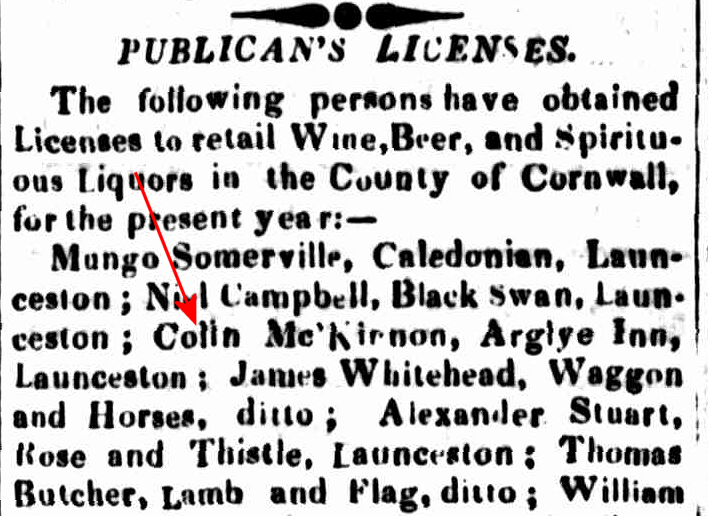
The Independent, 21 December 1833
(Note: Argyle Inn, Launceston appears in a advertisement for Solomon’s Longford coach in 1854 but this is supposed to be Angel Inn. It appears as such in the next advertisement.)
1834 William Wright, Birmingham Arms, Springs
This only appears in list of new licenses granted. It might not have been taken up.
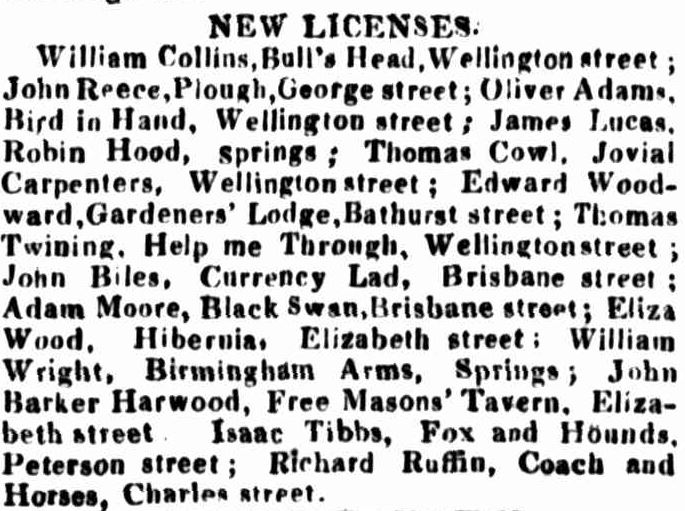
The Independent, 6 September 1834
Charles and Elizabeth St
(inomplete)
1867 Martin Blake
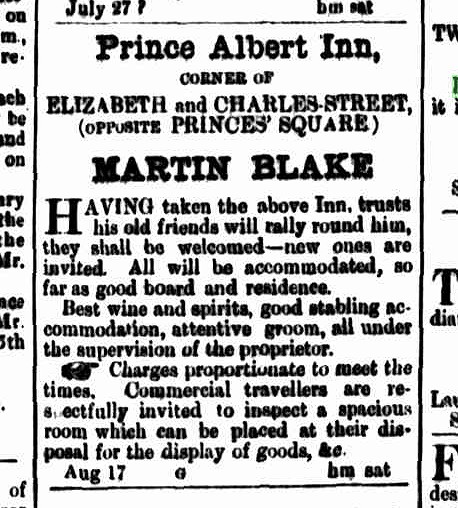
Cornwall Chronicle, 5 October 1867
The Workmen’s Club has boon removed from Patterson-street to the promises at the corner of Charles and Elizabeth-streets, formerly the Prince Albert Hotel, and formal possession was taken on the the inst., when supper-was given. An excellent spread was provided and a very pleasant evening was passed, the President, Adye Douglas, E q., occupying the chair.
Launceston Examiner, 18 June 1868
Charles Street
1835 John Sutherland, Bird-in-Hand, ?
1836 Thomas Martin, Bird-in-Hand, Charles Street
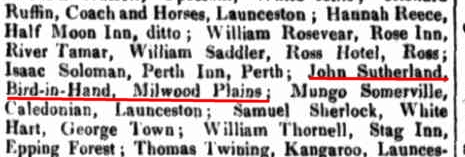
Launceston Advertiser, 15 October 1835
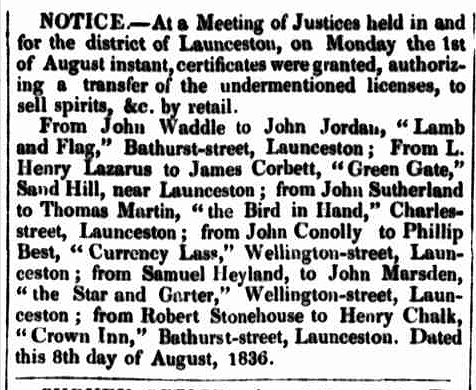
Wellington Street.

Cornwall Chronicle, 15 August 1846
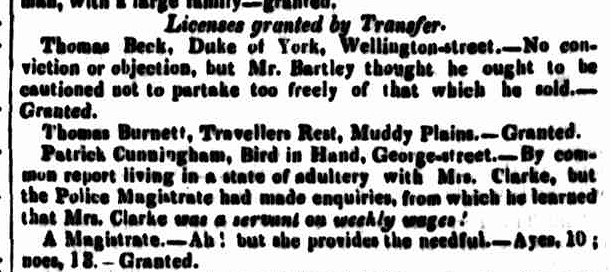
Cornwall Chronicle, 2 September 1846
Edward Fiddyment, from Duke of York, Wellington-street, to premises on the opposite side of the street, to be called the Lord Raglan. Mr. Rlocher and Mr. A. Douglas appeared to support the application.
Major Welman stated his opinion in favor of the application on the ground that Mr. Fiddyment was a respectable man and that the house occupied by him at present is in a very dilapidated state, where as and the one to which it was intended to transfer the license was a new one.
The Chairman questioned whether they had the power to transfer a license from one premises to other.
Mr. Rocher quoted the section of the Act referring to granting of transfers, and submitted that it was at the discretion of the meeting whether they granted a transfer from one house to another.
Mr. Douglas said that if the house was in such a dilapidated state the Justices would in a manner impose a penalty upon the applicant in refusing to grant the transfer and thereby compelling him to get a now licence; he considered that as the laws in this colony were getting more liberal than they were some years ago the section of the act should have a liberal construction put upon it; and in the applicants case nobody could possibly be a sufferer by the transfer but some would be gainers.
The Chairman observed that the application was made out in the form for a license, not for a transfer; and taking the application to be for a new license it was a question whether they could grant a licence to one already holding a licence. After a little further discussion Mr. Douglas said the application should be taken as an original licence and the applicant could then petition the treasury for a remission of the licence fee. A licence was then granted on the understanding that Mr. Fiddyment closes the premises now occupied by him on his removal to the opposite premises.
Launceston Examiner, 8 February 1859
Paterson & George Streets.

Launceston Advertiser, 11 May 1829
I’ve found no other mention of this house, nor any mention of Henderson or Jackson as having licensed premises.
Bathurst Street, near York St
1835-38 John Wiggins, Black Boy
Extracts from advertisements for auctions sales in 1839 show the location: